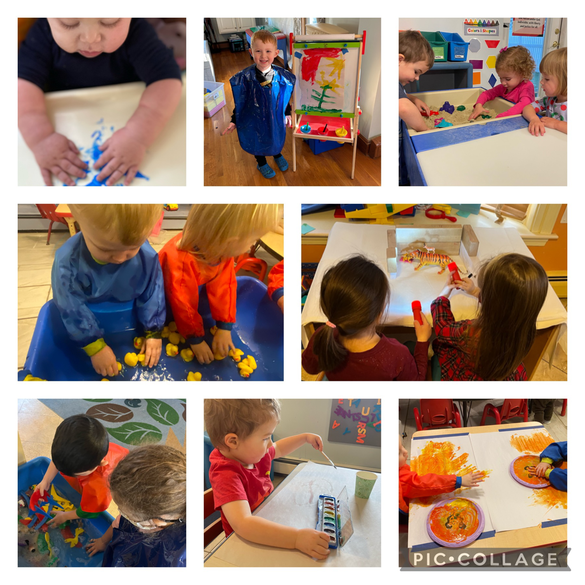Importance of Sensory Play
Sensory Play
In the Early Years
___
Ages 0-5
At Four Seasons Preschool we incorporate sensory play in almost everything that we do. From nature walks and finding leaves and pinecones in the neighborhood to getting messy in our sensory bins. There are endless opportunities to incorporate sensory play throughout the day and it truly is so important for children to be given various opportunities in the early years of development.
For some children, the messier, the BETTER!
The most attractive sensory activities to many children are the messy ones! Every classroom starts the day with a sensory activity for the children during free choice. Shaving cream, water or sand table, playdough, finger painting, easel painting, and so much more are just some activities offered each morning during free choice time. The children explore using all of their senses in our morning activities and surprisingly enough, the messier an activity, the calmer the classroom!
What is Sensory Play?
Sensory activities are anything that children are able to use their senses to explore. Sight, sound, taste, smell, and touch are all important in the sensory development of children ages 0-5. By engaging in sensory play, the children are exploring and learning about the world around them. Sensory play helps develop nerve connections in the brain pathways which helps children complete challenging tasks. This kind of play also encourages the development of language and motor skills. Often during sensory play you might hear children describe how something feels, smells, or sounds. This helps their descriptive language to build as they are exploring using their hands.
Below is a link with even more information about the importance of sensory play in the early years as well as a link with activities that can easily be done at home!
https://health.clevelandclinic.org/benefits-of-sensory-play-ideas/#:~:text=Sensory%20play%20focuses%20on%20activities,social%20interactions%20and%20encourages%20experimentation.


